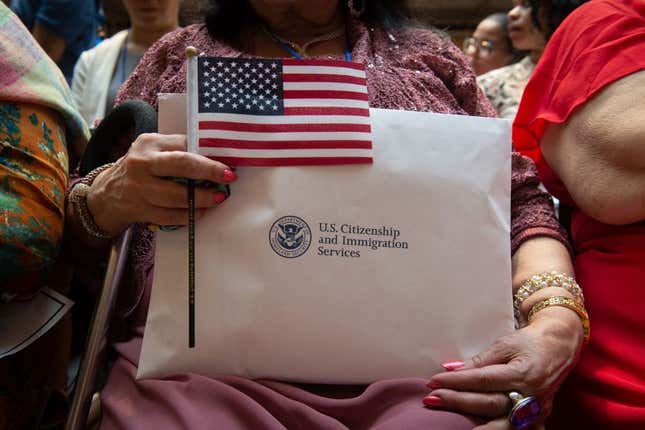
On Thursday, CNN reported the Supreme Court ruled to place a hold on a Biden Immigration policy that sought to set guidelines deciding which illegal immigrants should be arrested and deported. Although there was no apparent reason for the block, the justices have agreed to hear arguments on the case’s merits next term in late November. The judges acted on the administration’s emergency request to the court following conflicting decisions by federal appeals courts.
Add this to a list of cases concerning affirmative action and voting rights, and you have another Supreme Court term that could change the landscape of American society as we know it. In a 5-4 vote, conservative judge Amy Coney Barrett joined Justices Elena Kagan, Sonia Sotomayor, and Ketanji Brown Jackson in the dissent. This marks the first public vote Jackson has taken since the retirement of Justice Breyer on June 30th.
The argument the Biden administration and Homeland Security Secretary Alejandro Mayorkas have been trying to make is that the department is extremely limited in resources to handle deportations. They would like to go back to Obama-era policies, which prioritized individuals that “committed acts of terrorism, espionage or “egregious threats to public safety.”
In the latest appeal result, a federal judge in Texas blocked guidance from being implemented after Texas and Louisiana filed suit, arguing the release of “illegal immigrants with criminal backgrounds” is a burden on their justice systems. Both states went on to claim in their Supreme Court filing that the Biden administration was violating federal law requiring the detention of people who reside in the U.S. by illegal means. The new guidance issued in September gave immigration and Customs Enforcement agents a lot of decision-making power to choose whether enforcement actions were warranted.
Solicitor General Elizabeth B. Prelogar argued that Texas was “disrupting D.H.S.’s efforts to focus its limited resources on the noncitizens who pose the gravest threat to national security, public safety, and the integrity of our nation’s borders.”
“For most of our nation’s history, a suit like this would have been unheard-of,” Ms. Prelogar wrote, adding, “Courts did not allow states to sue the federal government based on the indirect, downstream effects of federal policies.”

